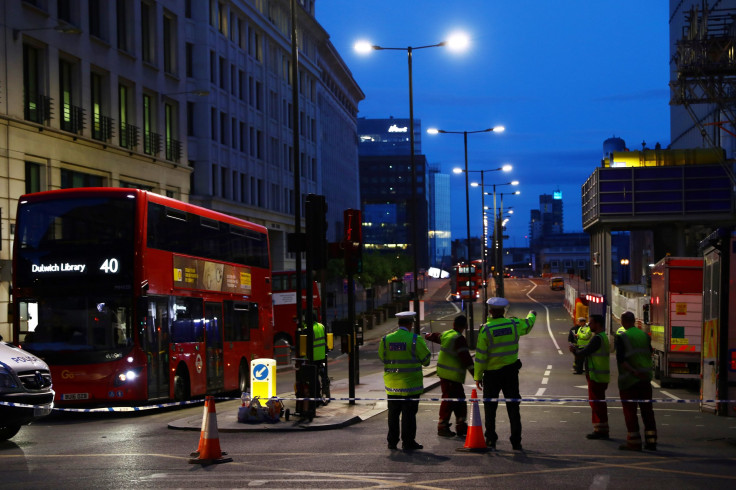Uber’s Surge Pricing Tactic During London Bridge Terror Attack Ignites Social Media Outrage

This story has been updated, 6/5; 3:50 EDT
Uber is fighting yet another pr battle. In the moments after the terrorist attack in London Saturday evening, the ride-sharing app began charging surge prices to Londoners trying to find safety — provoking intense social media outrage. Two days later, the company was still working to calm the uproar and assure the public that the company was not out to profit from the tragedy.
Uber issued a statement from Tom Elvidge, its London general manager:
"Our hearts go out to everybody affected by yet another horrific attack on our city. We'd like to thank all the drivers who helped tens of thousands of Londoners get home safely last night. As soon as we heard about the incident we immediately suspended dynamic pricing all around the area of the attacks - and shortly afterwards across the whole of central London - just as we did following the attacks in Manchester and Westminster. We are also ensuring all rides from around the affected area were free of charge. Our team is also working with the Metropolitan Police to help them get any footage from drivers who were in the area at the time."
Uber also said it would donate all fares to and from the One Love Manchester concert, an event to raise money for victims of the May 22 suicide bombing, to the emergency fund.
Twitter took notice of the refund process.
Thank you #uber for refunding my journey on Saturday night, means a lot !!
— Paisley Jackson (@PaisleyFJackson) June 5, 2017
The tone on Twitter Saturday evening had been harsh, as users condemned the ride-sharing service’s initial response. In their posts, people said Uber should have reduced prices immediately and help evacuate people to safety.
“Absolutely disgusting that Uber prices surge in London tonight? How disrespectful to the situation can you be? ,” one user wrote on Twitter.
Read: London Bridge Terror Attack: Why Vehicles Are Becoming Common Weapons
“Big fan of Uber but bitterly disappointed in profiting from a terrorist attack. £7 Knightsbridge to Victoria. Charging £40,” another tweeted.
#Uber has no ethics or morals...that's not a surprise they want to capitalize from an incident. Shameful, really...
— SPj_lu (@SpjLuv) June 4, 2017
Why black cabbies helped those get to safety! during the #LondonAttacks #uber showed there kind hearts by charging DOUBLE!! Disgraceful!
— Marc Zammit (@zammit_marc) June 4, 2017
Reacting angrily to Uber’s surge pricing, people pointed out that during previous terror attacks in London, taxi drivers rallied to provide free trips to evacuate people to safety. “London black cabs getting people home safe tonight often not charging. Whereas UBER have triggered a surge,” one user wrote on social media.
The #DeleteUber hashtag — which went viral in January when Uber appeared to be defying a temporary New York taxi boycott of JFK Airport, begun in protest of Donald Trump’s travel ban — got fresh life.
Think everyone needs to delete their #Uber accounts. Absolutely vile/disgusting to read they put their charges up after #LondonBrige
— 💙 Kristine Bean 💛 (@krisbeanie) June 4, 2017
Read: #DeleteUber: 200,000 Removed Uber From Their Phones After Social Media Campaign
Uber later explained that surge pricing kicks in automatically; the company says the premium was turned off near London Bridge as soon as staffers began hearing reports of the attack from the BBC. Surge pricing was disabled for all of central London around 11:40 p.m., the company said.
Since Uber’s reaction time exacerbated the backlash, the company can avoid a similiar problem in the future by neutralizing surge pricing during an emergency as quickly as possible, Eric Dezenhall, a crisis communications strategist and founder of public relations firm Dezenhall Resources, told International Business Times.
"Just because people complain, doesn't mean it's a business problem," Dezenhall said. "This is more operational than public relations."
As the news of the refunds went out, the tone on Twitter changed.
That was good news, at last, for the embattled brand.
Joe DiFazio contributed to this report.
© Copyright IBTimes 2025. All rights reserved.





















